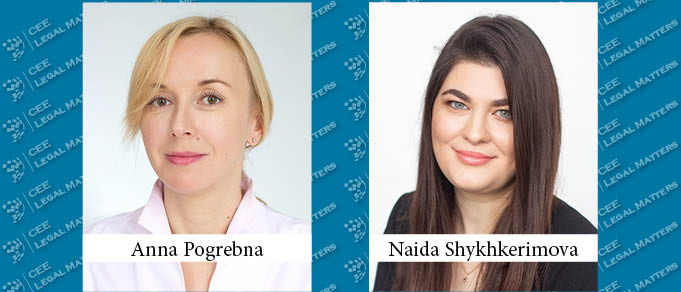In the European Commission’s January 8 Report on the protection and enforcement of intellectual property rights in third countries, Ukraine was identified as a Priority 2 country. This category includes countries with systematic problems in the area of intellectual property protection and enforcement, causing significant harm to EU countries.
Ukraine became quite infamous in the intellectual property right (IPR) protection area on the pharmaceutical market due to repeated cases of invention patent protection infringements, violations of protected industrial design or trademarks, and copying of packaging by generic producers, which could be confusing to consumers and harmful for the holders of IPR.
An illustrative case of ineffective IPR protection was a threatened investment arbitration by Gilead Sciences Inc., in which Gilead Sciences Inc. claimed that the Ukrainian state authority registered a generic drug bypassing Gilead Science’s IPR on the innovative drug Sovaldi. The investment arbitration claim was eventually averted after Ukraine agreed to a settlement.
Now, Ukraine is about to introduce significant changes to the IPR regulations that may improve IPR protection on the country’s pharmaceutical market. Draft law No. 2259 (the “Patent Legislation Reform Draft”), which has already passed its first reading in the Ukrainian Parliament, is designed to increase competition between pharmaceutical producers and combat IPR abuse. Significantly, it introduces provisions designed to combat so-called “evergreen” patents and implements the Bolar provision to enhance the access of generic products to the market.
Combating “Evergreen” Patents
Due to lack of any regulation, evergreening had been used by drug producers as a strategy to extend the lifetime of patent protection by presenting minor changes, for example, to the form of drugs.
Now, in an attempt to combat evergreening, the Patent Legislation Reform Draft specifically withholds IPR protection from some substances, like salts, ethers, combinations, polymorphs, metabolites, and so on. as well as from new uses of an existing medicinal product.
In addition, the Patent Legislation Reform Draft provides for post-grant opposition proceedings to allow challenges to granted patents by third parties in an administrative process.
Implementation of the Bolar Provision
The Bolar provision is a safe harbor exemption that allows a generic producer to register its product straight after expiry of patent protection of the original drug, thus reducing the time for bringing a product to the market and giving consumers the opportunity to get faster access to treatment.
While the Bolar provision had not been previously implemented into the Ukrainian IPR regulations, now the Patent Legislation Reform Draft specifically prescribes that production of pharmaceuticals protected by patent by generic producers does not constitute violation of IPRs. However, generic producers will be allowed to sell their drugs only after expiry of additional patent protection of the original drug.
Parallel Imports as a Tool to Enhance Competition on the Pharmaceuticals Market
In addition to the Patent Legislation Reform Draft, draft law No. 2089 (the “Parallel Imports Draft”) is currently under active discussion in the Parliament. If adopted, it will significantly change competition conditions on the market, especially regarding so-called “monopolistic” drugs, i.e., those that are not interchangeable with any other products.
Under the Parallel Imports Draft, importers from other countries will be allowed to import drugs registered in their countries to Ukraine, only updating packaging to Ukrainian legal requirements. While such parallel imports may undoubtedly increase competition on the distribution level and allow patients to purchase drugs at fair market prices, there are concerns that introduction of parallel imports may undermine IPR protection of drugs. However, due to constant attempts of Ukrainian stakeholders to enhance competition on the pharmaceutical market, it is highly likely that the Parliament will eventually support this initiative.
Ultimately, these initiatives are mostly about finding the desirable balance between IPR of pharmaceutical companies, which are trying to protect their incomes and cover material costs for the elaboration of innovative drugs, and protection of end customers. At the same time, as under the EU-Ukraine association agreement Ukraine is obliged to enhance toe level of IPR protection and enforcement, further progress and developments in this area are inevitable.
By Anna Pogrebna, Partner, and Naida Shykhkerimova, Associate, CMS Reich-Rohrwig Hainz, Kyiv
This Article was originally published in Issue 7.3 of the CEE Legal Matters Magazine. If you would like to receive a hard copy of the magazine, you can subscribe here.





























